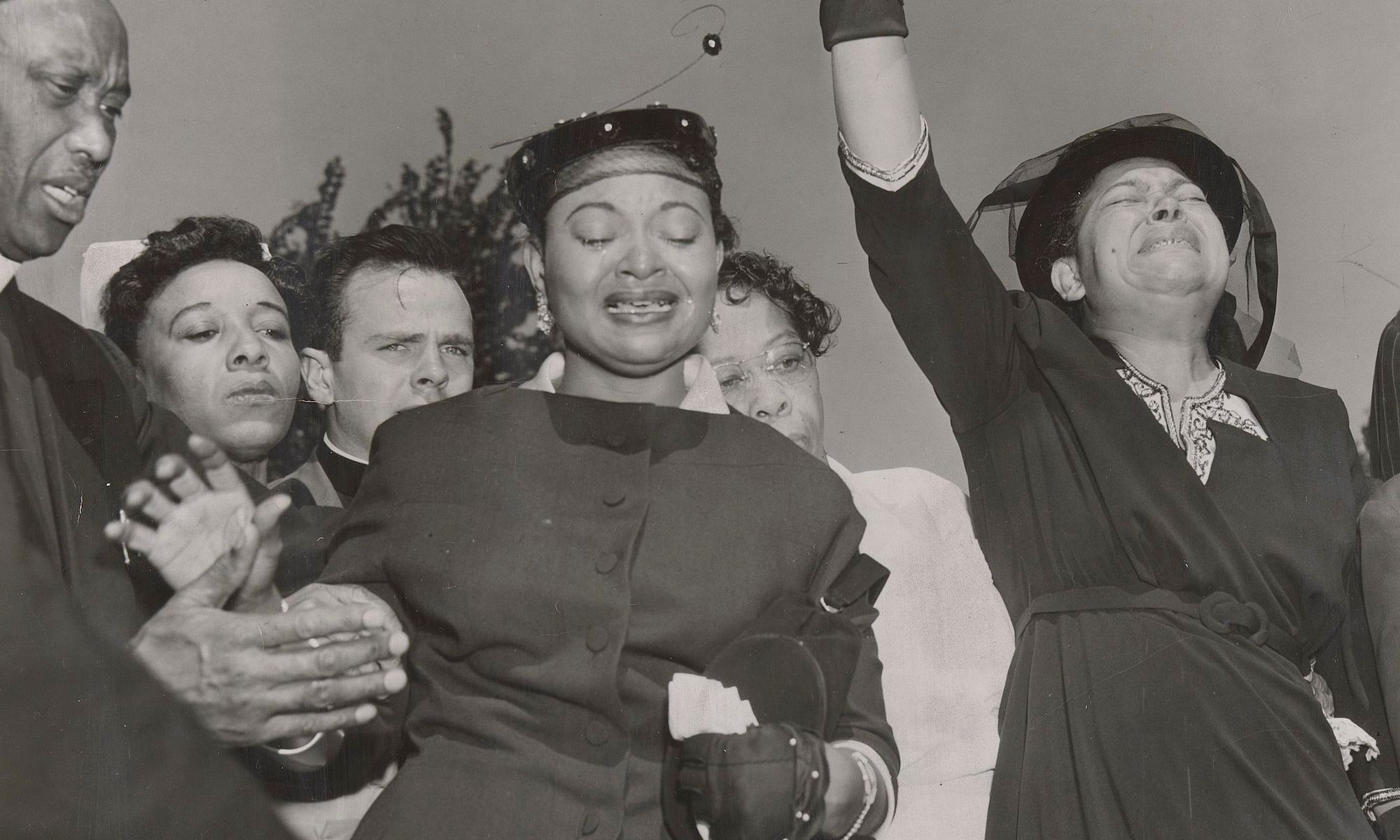Mamie Till-Mobley (centre) and other mourners at Emmett Till's funeral, 6 September 1955 Photo: Dave Mann / Collection of the Smithsonian National Museum of African American History and Culture
The White House has announced that a national monument in honour of Emmett Till and his mother, Mamie Till-Mobley, will be established on 25 July. On what would have been Till’s 82nd birthday, President Joe Biden will sign a proclamation creating the Emmett Till and Mamie Till-Mobley National Monument at a site in Chicago, where Till was from, and two in Mississippi, where, while visiting family in the area in 1955, the Black 14-year-old was kidnapped, tortured and killed by two white men for allegedly whistling at a white woman. Following Till’s death, his mother’s activism helped broaden support for the Civil Rights movement.
The site on Chicago’s South Side, Roberts Temple Church of God in Christ, is where Till’s funeral was held. Till-Mobley famously insisted that her son have an open casket, showing the world the ferociousness of his killers, and 250,000 people came to the church over four days to pay their respects. Images of Till in the casket appeared in Jet magazine, infuriating the Black community and people across the country.
The two sites in Mississippi, both in Tallahatchie County, are at Graball Landing, near where Till’s body is believed to have been found in the Tallahatchie River, and the Tallahatchie County Second District Courthouse, where his killers were acquitted by an all-white, all-male jury. When Till’s body was found, thrown into the river weighted down by a cotton gin fan, he had been so badly beaten that he was identified only by a silver ring on his finger. Although the two suspects later admitted to kidnapping, torturing and killing Till, they were never punished.
Several signs telling Till’s story were installed in Mississippi, including at Graball Landing, in 2008. The Graball Landing sign in particular was subject to vandalism multiple times over the years, finally resulting in the installation of a bulletproof replacement sign and a surveillance system in 2019. Last year, a Mississippi jury chose not to indict the white woman who had accused Till of whistling at her (and whose then-husband was one of the men who killed the teenager). She died earlier this year. Also in 2022, the US Congress posthumously presented Till and Till-Mobley with the Congressional Gold Medal (Till-Mobley died in 2003), and Biden signed the Emmett Till Antilynching Act into law, officially defining lynching as a federal hate crime. Till’s casket is on display at the Smithsonian’s National Museum of African American History and Culture in Washington, DC.
The Emmett Till and Mamie Till-Mobley National Monument comes at a time of increasing political division in the US, recently exemplified by arguments over how to teach Black history. Just last week, Florida’s Board of Education approved new guidelines on Black history classes in schools, including a focus on how enslaved people “developed skills which, in some instances, could be applied for their personal benefit”. Previously, the state had questioned the “educational value” of Advanced Placement African American Studies classes (which high school students can use as university credit) and discouraged educators from teaching in ways that might promote feelings of guilt among white students.

